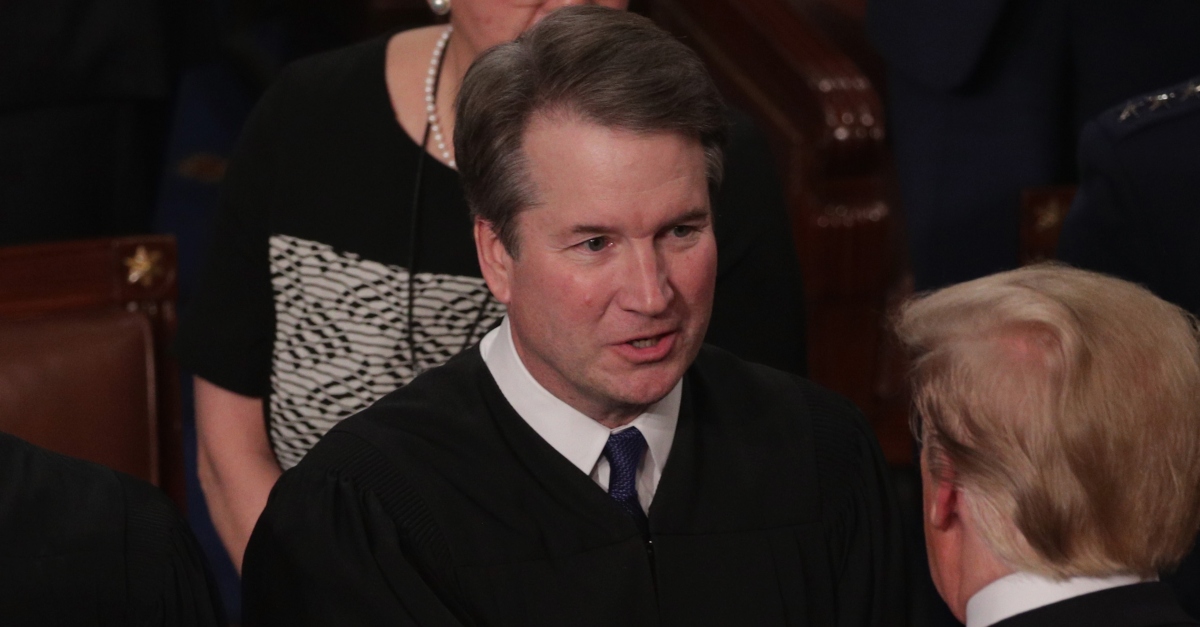
The controversy surrounding the party-line confirmation and swearing in of Associate Justice Amy Coney Barrett to the U.S. Supreme Court was further compounded on Monday evening when the court’s conservative justices sided with Republicans in Wisconsin, ruling that the critically important swing state can only count absentee ballots that arrive by Election Day. While the court did not provide a majority opinion, Justice Brett Kavanaugh’s 18-page concurrence was widely criticized for embracing unsubstantiated partisan talking points and containing numerous false and misleading claims.
One of the most glaring errors in Kavanaugh’s opinion concerned his “Trumpian” justification for why “most states” do not accept mail-in ballots that arrive after Election Day. Kavanaugh supported his analysis with a cherry-picked quote from a law review article that actually contradicted his argument.
“Those States want to avoid the chaos and suspicions of impropriety that can ensue if thousands of absentee ballots flow in after election day and potentially flip the results of an election. And those States also want to be able to definitively announce the results of the election on election night, or as soon as possible thereafter,” the justice wrote.
Kavanaugh then quoted from the law review article—titled “How to Accommodate a Massive Surge in Absentee Voting” by New York University Law Professor Richard Pildes—to bolster his point.
“The States are aware of the risks described by Professor Pildes: ‘[L]ate-arriving ballots open up one of the greatest risks of what might, in our era of hyperpolarized political parties and existential politics, destabilize the election result. If the apparent winner the morning after the election ends up losing due to late-arriving ballots, charges of a rigged election could explode,’” Kavanaugh wrote. “The ‘longer after Election Day any significant changes in vote totals take place, the greater the risk that the losing side will cry that the election has been stolen.’”
But a closer reading of Pildes’s article, or even simply taking note of the section heading under which the cited lines appears, reveals that Pildes unequivocally concluded that all states should make sure they count valid ballots received after Election Day. In fact, Pildes argues that given the unique circumstances of this election, every state should push back their deadlines for accepting ballots mailed by election day.
“States that require absentees to be received by election night or shortly after should move this date back,” Pildes wrote. “Moreover, if a significant number of votes come in after a receipt deadline that has not been changed and that is much tighter than in other states, ex post litigation challenging that deadline is easy to imagine. This is exactly what we do not want to face for a risk that can be mitigated in advance.”
In her dissent, Justice Elena Kagan argued Kavanaugh’s claim that votes counted after Election Day might “flip” election results is simply nonsensical.
“Justice Kavanaugh alleges that ‘suspicions of impropriety’ will result if ‘absentee ballots flow in after election day and potentially flip the results of an election,’” Sotomayor wrote in a footnote. “But there are no results to ‘flip’ until all valid votes are counted. And nothing could be more ‘suspicio[us]’ or ‘improp[er]’ than refusing to tally votes once the clock strikes 12 on election night. To suggest otherwise, especially in these fractious times, is to disserve the electoral process.”
[image via Alex Wong/Getty Images]